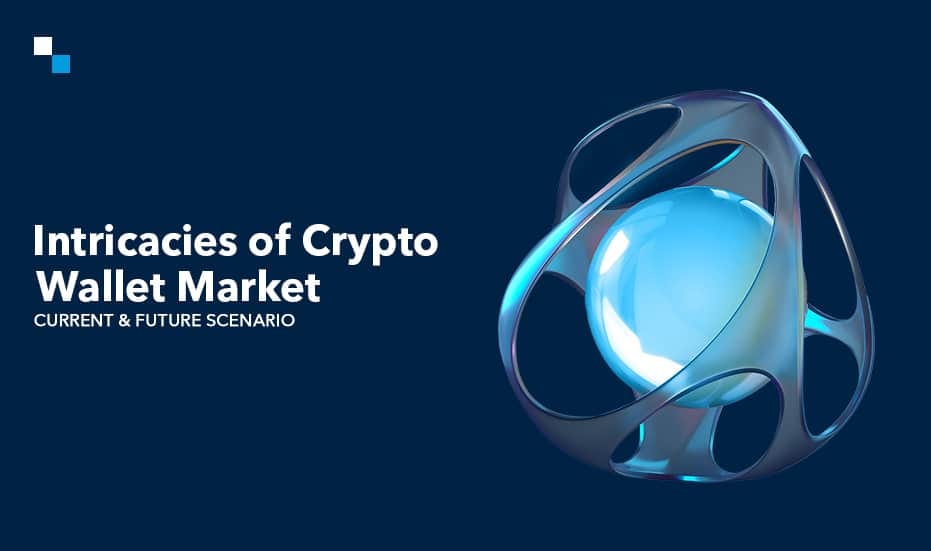
The Power of AI in Building Successful ICO Development
November 14, 2024
Unichain Blockchain: Key Features, Functionality, and Use Cases Explained
November 14, 2024As businesses embrace the shift towards cashless and mobile-first payments, white-label wallet debit cards provide a strategic advantage, transforming how businesses provide seamless payment solutions. These customizable cards offer a cost-effective way for companies to enter the digital finance ecosystem, offering everything from traditional banking services to cryptocurrency integration, all under their own branded identity.
Yet, to maximize the potential of these solutions, a detailed evaluation of the cost implications is paramount. A comprehensive understanding of key factors will ensure businesses make informed and strategic investments. However, as technological advancements like blockchain integration and AI-powered fraud detection continue to push the limits of security and functionality, these cards will become more than just a means of payment; they will become a vital component of digital finance’s future. As this market continues to grow, investing wisely in white-label wallet debit card solutions has never been more crucial for businesses aiming to stay ahead of the curve.
The Hype of White-Label Debit Cards in The Market
White-label wallet debit cards are making waves in the fintech industry, and it is easy to see why. These customizable, cost-effective solutions are revolutionizing how businesses can offer branded payment cards without the hassle of building complex financial infrastructures. Businesses are grabbing the chance to introduce slick, branded cards that improve their client experience, from digital wallets to cryptocurrency exchanges.
What’s driving this boom? A few key trends are at play. First, the rapid shift to cashless payments, especially in the wake of the pandemic, has fueled demand for digital-first financial solutions. White-label wallet debit card solutions enable businesses to tap into the growing trend of contactless payments and instant access to funds with an easy integration into their existing ecosystems.
Market data shows the white-label wallet payment gateway solution market is set to grow exponentially, with a predicted CAGR of over 20% by 2027. The rise of crypto and digital assets is another catalyst, as blockchain-based companies are offering these cards to enhance liquidity and customer loyalty. With low setup costs, fast deployment, and immense scalability, white-label debit cards are undoubtedly the future of branded financial products.
Key Trends Shaping the White Label Wallet Payment Gateway Solution Market
- Enhanced Security Features
Payment gateway security is still crucial despite the evolution of cyberthreats. White-label wallet debit card solutions are increasingly incorporating advanced security measures like multi-factor authentication, robust encryption protocols, and AI-driven fraud detection. These features are essential for protecting sensitive transaction data and preserving user trust in a competitive digital landscape.
- Integration with Emerging Technologies
White-label wallet payment gateway solutions are embracing emerging technologies like AI, ML, and blockchain to improve functionality. AI and ML aid in real-time fraud detection, automate risk assessments, and optimize transaction efficiency, while blockchain integration enhances transparency and security by enabling immutable, traceable transaction records.
- Rise of Mobile Payment Solutions
Mobile payments are becoming increasingly popular as smartphone usage rises. White-label payment gateways now offer comprehensive mobile solutions that support digital wallets, QR codes, and contactless payments, aligning with the increasing consumer preference for mobile transactions. This flexibility allows businesses to meet customer demand for seamless, on-the-go payment experiences.
- Shift to Subscription-Based Models
As subscription-based services gain popularity, white-label payment gateways are evolving to support recurring billing and efficient subscription management. These features enable businesses to offer hassle-free subscription services, manage automatic renewals, and boost customer retention, fostering consistent revenue streams.
- Increased Focus on Regulatory Compliance
Compliance with global regulations, such as PCI-DSS, GDPR, and PSD2, is critical in the payment gateway industry. White-label digital wallet solutions now prioritize adherence to these standards to mitigate legal risks, protect customer data, and meet cross-border operational requirements. This trend not only ensures secure and lawful operations but also strengthens trust among businesses and end-users.
- Data-Driven Insights and Analytics
Leveraging data analytics is becoming integral for white-label wallet payment gateway solution. Real-time insights into transaction trends, customer behavior, and fraud patterns empower businesses to make informed decisions, optimize revenue, and tailor services to meet evolving customer needs. Predictive analytics also enables early detection of potential payment issues, reducing transaction failures and enhancing the user experience.
- Globalization and Multi-Currency Support
With the growth of cross-border eCommerce, white-label wallet payment gateways increasingly support multi-currency transactions, enabling businesses to operate globally without currency conversion complications. By integrating features like dynamic currency conversion, businesses can cater to international customers more effectively, broadening their market reach and driving revenue growth.
These trends are shaping the future of white-label payment gateways, making them essential for businesses seeking adaptable, secure, and feature-rich payment processing solutions. As technology advances, white-label providers are continuously evolving to meet the demand for faster, more secure, and globally compliant payment options. However, you must stay updated about the real-world applications of white-label wallet digital cards for better understanding.

Use Cases of White Label Wallet Debit Card Solutions
Are you planning to invest in crypto wallet solutions with crypto debit card features? If yes, then here are some practical use cases of white-label debit card solutions integrated into white-label crypto wallets, showcasing their real-world application across various industries, including Web3 and traditional sectors:
1. Neo Banks and Digital Banking
- Practical Application : Neobanks, which are digital-first, branchless crypto banks, are leveraging white-label debit cards integrated with crypto wallets to offer a comprehensive financial service package. These cards enable users to access both fiat and cryptocurrency balances seamlessly, allowing for easy conversions and real-time spending at POS systems.
- Real-World Example : A neo bank can provide its customers with a white-label wallet debit card that links directly to their crypto wallet, allowing users to spend Bitcoin, Ethereum, or stablecoins alongside their regular bank balance. This integration provides users with flexibility, convenience, and a seamless bridge between traditional and digital assets.
2. Retail and E-Commerce
- Use Case : White-label wallet debit cards that are linked to crypto wallets are gaining traction as a substitute payment option in the retail and online markets. Retailers can issue these cards to customers, allowing them to shop using both digital and fiat currencies, expanding the range of payment options, and enhancing the customer experience.
- Real-World Example : An e-commerce platform can issue white-label debit cards linked to crypto wallets, enabling users to purchase goods using their crypto balance. This is particularly beneficial for crypto enthusiasts who prefer spending their assets directly rather than converting them into fiat.
3. Cryptocurrency Exchanges and Wallet Providers
- Use Case : Cryptocurrency exchanges and white label digital wallet providers are integrating white-label crypto cards to give users easy access to their digital assets in the real world. These cards allow customers to spend crypto on everyday purchases, withdraw cash from ATMs, and even track expenses through mobile apps, making crypto more accessible.
- Real-World Example : A crypto exchange can offer users a white-label wallet debit card to easily access and spend funds from their crypto wallet. Exchanges can increase user engagement and loyalty by connecting the card to a user’s cryptocurrency balance, enabling users to make purchases with their digital assets.
4. Web3 & DeFi
- Use Case : In the Web3 ecosystem, including DeFi projects, white-label wallet debit card solutions can be used to allow seamless spending of rewards and earnings from staking or liquidity provision. These cards can be tied to crypto wallets, allowing users to make purchases or withdraw fiat without needing to convert assets manually.
- Real-World Example : A DeFi platform offering yield farming or staking can issue white-label debit cards to its users, enabling them to spend the rewards earned from staking directly. The integration with a crypto wallet simplifies this process, making it easier for DeFi participants to access their rewards.
5. RWA Tokenization
- Use Case : In the sector of tokenized RWAs, white-label wallet debit card solutions can be used to enable spending of tokenized real estate or other asset-backed tokens. Investors in tokenized properties or commodities can access their investments through these cards, creating a bridge between physical assets and digital finance.
- Real-World Example : A company that tokenizes real estate could issue debit cards to investors, allowing them to access dividends or income earned from rental properties directly into their white label digital wallet solutions. This enables them to convert tokenized assets into usable funds without needing to liquidate them.
6. Gaming & Virtual Goods Marketplaces
- Use Case : White-label wallet debit cards are being incorporated into online marketplaces for virtual goods and gaming platforms. Players can convert in-game earnings, rewards, or even NFTs into spendable funds via the crypto wallet linked to the white-label debit card. This allows gamers to spend winnings in real-world transactions.
- Real-World Example : A gaming platform could offer players a crypto debit card that links to their white label digital wallet holding in-game tokens, or NFTs. Players can then convert these assets into fiat currency or use them for online and offline purchases, enhancing the utility of virtual assets.
7. Supply Chain and B2B Payments
- Use Case : Crypto debit cards integrated into white-label crypto wallets can streamline B2B transactions, especially in sectors like supply chain management. Businesses can use these cards to make seamless payments to suppliers or contractors in cryptocurrency, eliminating friction and improving operational efficiency.
- Real-World Example : A business in the supply chain industry could issue white-label debit cards to its suppliers, allowing them to receive and use payments in cryptocurrency. This facilitates faster, cheaper, and more secure transactions compared to traditional payment methods.
How To Choose A White Label Wallet Debit Card Development Company?
✓ Expertise, Experience, and Reputation – Look for a white-label digital wallet company with proven experience in blockchain, crypto wallet integrations, and a strong track record in delivering reliable, high-quality white-label debit card solutions. Research client reviews to ensure their reputation is solid.
✓ Customization, Branding, and Multi-Currency Support – Ensure the company offers flexible branding options for card design and user interfaces while also supporting multi-currency functionality, including both fiat and digital currencies, to cater to diverse customer needs.
✓ Compliance, Security, and Regulatory Knowledge – Choose a white label wallet debit card solution provider that understands global financial regulations (KYC, AML) and offers robust security features like encryption and fraud prevention, ensuring secure and compliant operations.
✓ Scalability and Future-Proof Solutions – Opt for a provider that offers scalable solutions, allowing for business growth, adaptability, and seamless future integrations or updates to meet evolving market demands.
✓ Cost-effectiveness and Ongoing Support – Compare pricing to ensure value for money while maintaining high-quality services. Additionally, select a provider that offers reliable customer support and maintenance to ensure smooth, long-term operation.
You must now have a clear mindset on how and where to invest. But the main question that still arises is: how much shall a white label wallet debit card solution cost you? Right? Well, now worries! Scroll down the blog to check the factors that impact the white label wallet digital wallet cost and how you can save on the hidden costs by partnering with a renowned firm.
How Much Does White Label Wallet Debit Card Cost?
The cost of implementing crypto debit cards in white label wallet solutions can vary significantly based on several critical factors. Below is a summary of the main factors affecting the price:
- Customization & Branding – Extensive branding and interface customizations in white label debit cards, such as unique designs, raise initial costs. Simple branding options are more cost-effective.
- Technical Features – Features like multi-currency support, crypto-wallet integration, and enhanced security add to the solution’s price. Basic setups are typically less expensive.
- Compliance & Regulations – Meeting KYC, AML, and regional regulations increases cost due to the need for legal compliance. This is especially relevant in highly regulated markets.
- Technology Infrastructure – The choice of backend, API integration, and cloud or on-premise hosting impacts costs. Complex infrastructures often require higher investment.
- Provider & Service Agreement – Reputable providers may charge a premium, and added costs for support or maintenance depend on the Service-Level Agreement (SLA).
Why Build White Label Wallet Debit Cards With Antier?
When companies and investors want to enter the debit card market with ease, working with Antier guarantees a dependable, scalable solution that can be customized to satisfy a range of market demands. We provide safe and completely compliant white-label wallet debit card solutions to strengthen your brand and increase consumer engagement thanks to our vast experience in digital finance. Our white-label debit card development services include :
- Customizable Card Design and Branding
- Secure API Integrations with Wallets and Banks
- Multi-Currency and Crypto Support
- KYC and AML Compliance Management
- Seamless Payment Gateway Integration
- Dedicated Post-Launch Support
Choose us for a strategic partnership to enhance your financial offerings with industry-leading white-label debit card solutions.



